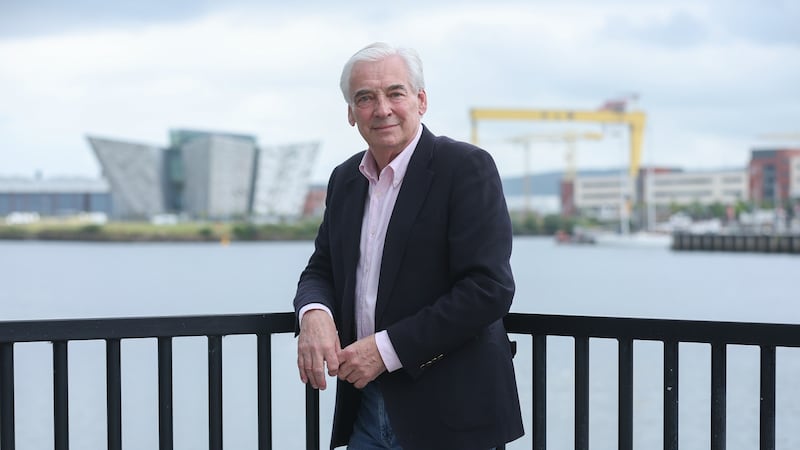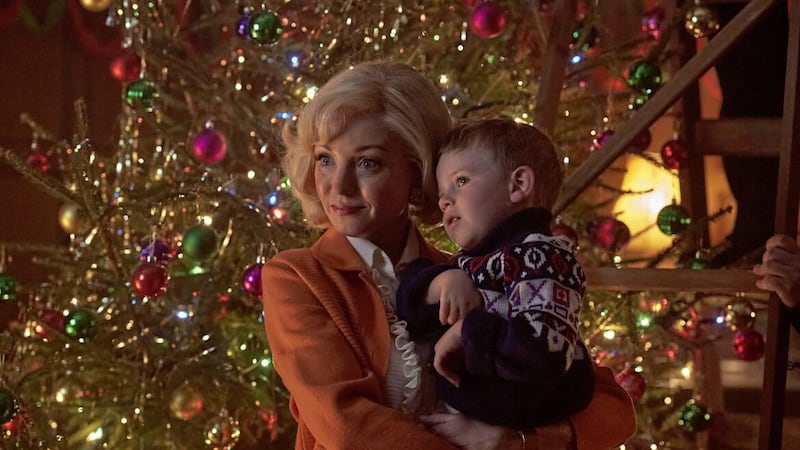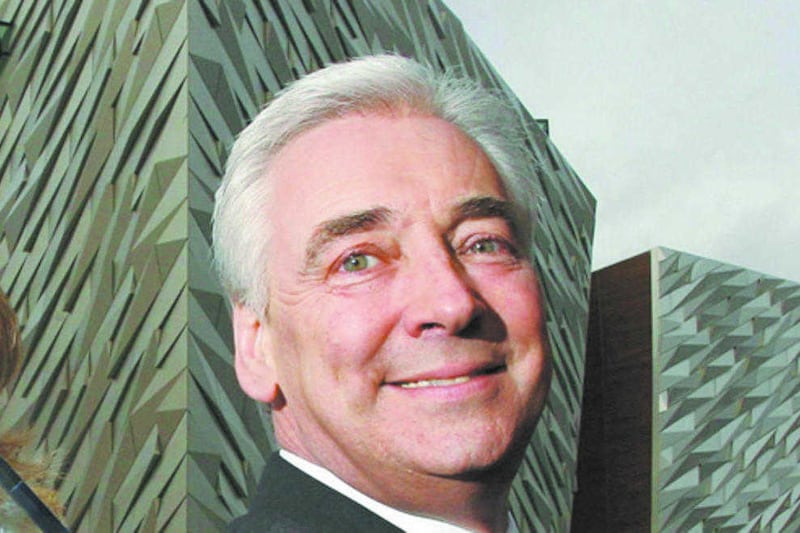THIS weekend Paul Clark celebrates 50 years in journalism – quite a feat for someone who had “no ambition” to be a journalist when growing up.
From a young age, the UTV Live news anchor aspired to be a radio DJ and when his A-level results put on hold his plans to study French at university, he decided to enroll in a year-long NCTJ newspaper journalism course at the then College of Business Studies in Belfast.
“In truth, I was using journalism as a means to an end because I really wanted to get into radio broadcasting, but you couldn’t go directly into radio and had to get your grounding in a newspaper first.”
Fifty years later, and now one of the most recognisable and respected faces in journalism in Ireland, Clark returned to “his roots” for an interview with The Irish News, the newspaper that gave him his first job in the industry.
As a trainee reporter in this paper's former office in Donegall Street, Paul’s early jobs included filing reports from Belfast Magistrates' Court.
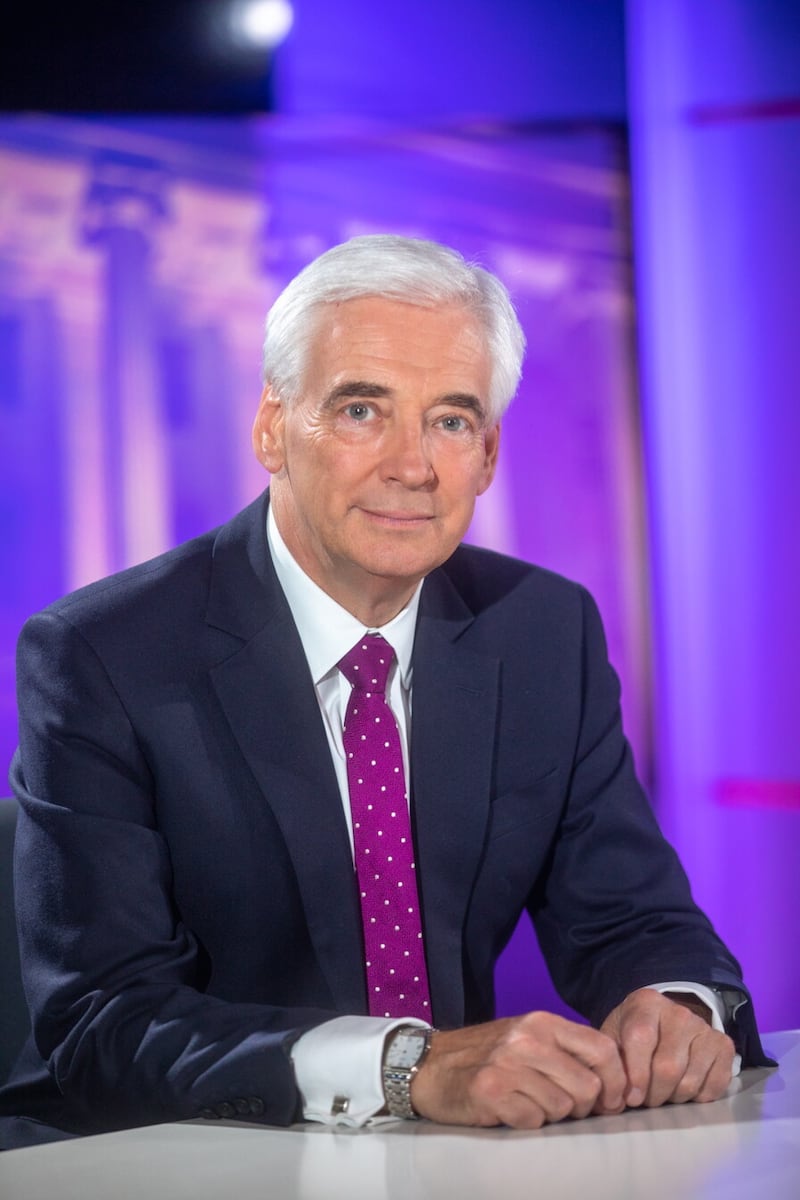
He did make the front page when reporting on a local housing charity AGM in Belfast, where its chairman Lord Dunleath made the comment that he believed the postwar development of Ballymurphy was not fit for purpose saying “if I lived in Ballymurphy, I would throw stones too".
When he filed his story, his editors refused to believe the rookie reporter had got his facts correct, but being an aspiring broadcaster he was able to prove them wrong by playing the quote back on his trusty cassette recorder he carried everywhere.
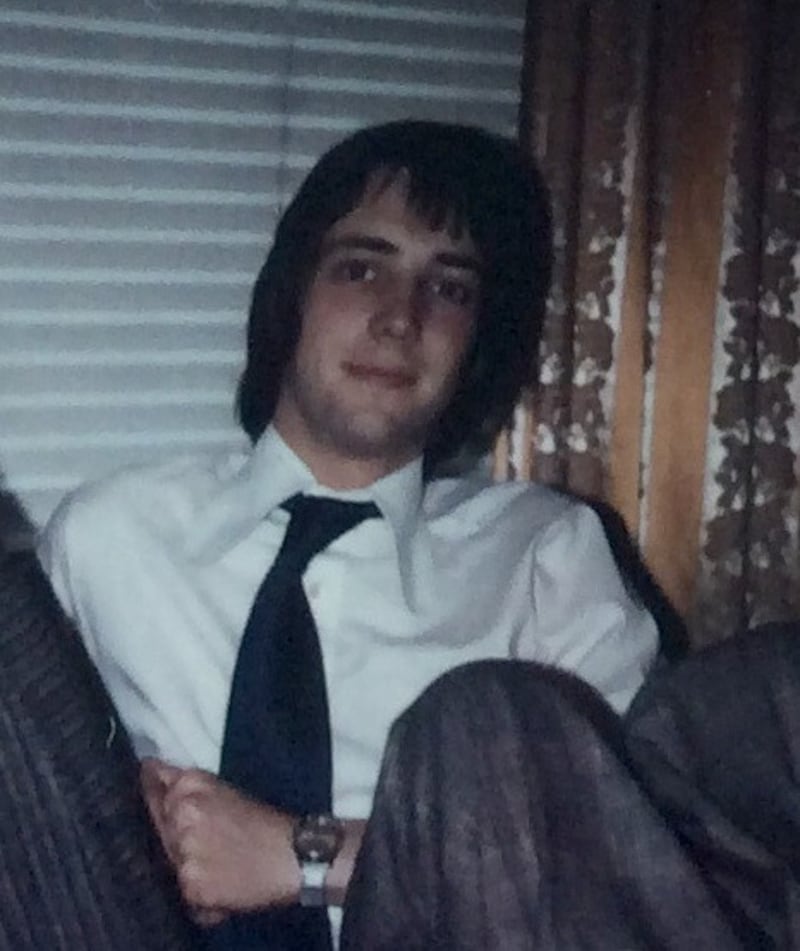
However, it was the brutal murder of Stormont Senator Paddy Wilson and his friend Irene Andrews, who were abducted as they drove home from a Belfast pub that gave the young reporter a stark awakening to life as a journalist at the heights of the Troubles.
“It would literally have been a week into my career. They were kidnapped from across the road of the Irish News office. I was shadowing a senior reporter, whom I believe was Paddy O’Flaherty, who was doing stories about the aftermath of the murder.
“Paddy Wilson’s body was laying in O'Kane's funeral parlour near our office. We went along and 50 years on I still remember what I saw,” recalls Clark about the murder that shocked communities across the religious and political divide.
Clark has been at the forefront of huge moments in our history, from bombings to peace agreements. There have been many tragedies, events and people that have stuck with him.
“I think we forget at our peril, just how awful those times were. Some of the experiences that touched me most weren't actually broadcast. As journalists, we feel the pain of the people whom we serve,” he reflects.
One such person was peacemaker Gordon Wilson, who was caught up in the Enniskillen Remembrance Sunday bomb, which fatally injured his daughter Marie. His heartfelt plea to loyalists not to take revenge for the atrocity made headlines all over the world.
“He led from the front, but it was a very lonely place at that time because there was a sea change politically in 1987,” reflects Clark, who had many private conversations with Gordon that year.
“Unionist politicians at the time had great difficulty with the fact he considered being a Senator in the Irish Republic. He had to remind all of us that he was born in Manorhamilton in Co Leitrim.”
Another recollection that had a lasting impact upon Clark was his arrival with Cardinal Cahal Daly at an interdenominational prayer breakfast in Armagh.
“I remember clearly the protesters shouting abuse at him. My legs were like jelly as he leaned on me while walking into the building. Nobody should have to endure that, and I thanked him for allowing me to share that part of his pilgrimage.”
Clark has publicly spoken in the past about his own personal faith and he hasn’t been without criticism himself. Earlier this year, someone on social media posted a flippant comment asking him if he changed his religion to advance his career.
“I always tried to have this relationship with Christ Jesus, which is beyond any of the church denominations. So I'm uncomfortable with the terms Catholic and Protestant. I am very comfortable with the term Christian,” adds the 69-year-old, quick to dismiss the online trolls.
“My father was Presbyterian, and became Catholic upon marriage. "That's the way it was in the 1950s,” says Clark, who was raised a Catholic and served as an altar boy, leading his mother Ida – now 92 years old – to have aspirations that her eldest son would one day becoming a priest.
Today he worships at Fitzroy Presbyterian Church in south Belfast, which he points out has an inter-church fellowship with Clonard Monastery in the west of the city.
“Too much has happened in my life for me not to believe in God and unashamedly, I bring my Catholicism with me on the journey," adds Clark, whose son Peter studied theology.
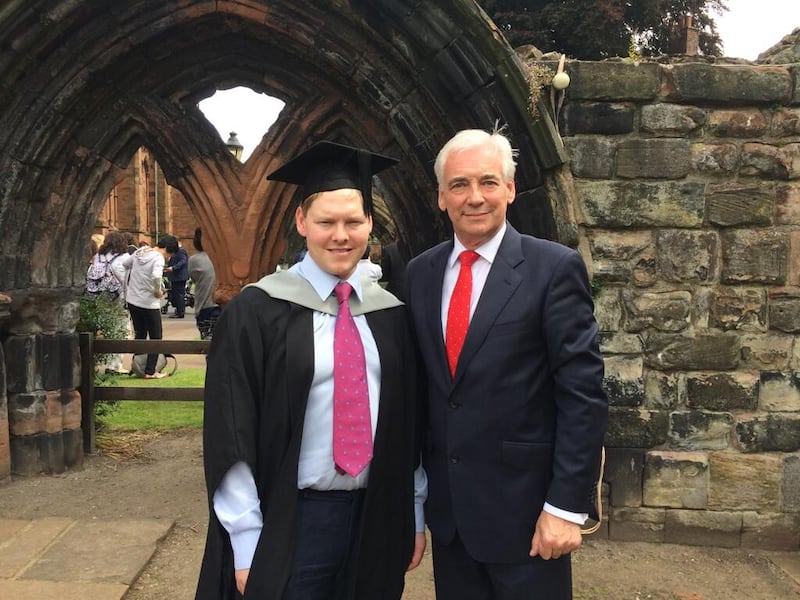
His other son David was born with Down Syndrome and after a difficult start to life, that involved life-saving surgery, he has been an inspiration to both he and Carol, his supportive wife of 38 years.
“David is now 32 and is working in sheltered employment. He does courses at Belfast Metropolitan College and is a real wee thespian,” boasts his proud dad, revealing that he is friends with and belongs to the same theatre group, Babosh, as James Martin, star of the Oscar winning An Irish Goodbye.
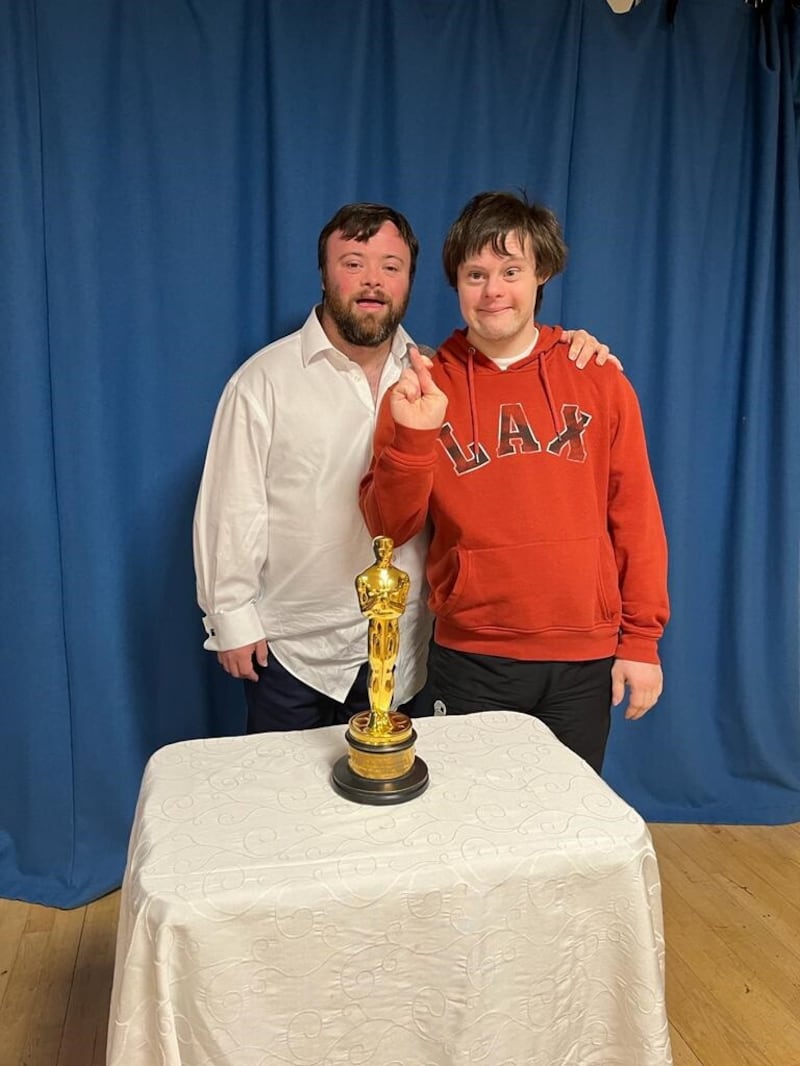
Over the years, Clark has used his public profile to help charities, including Unicef and the Northern Ireland Hospice, of which he is president.
It was during the Ulster Workers' Council strike of May 1974 that Clark had his first experience of broadcasting, working freelance in a local breakfast news slot on what pre-dated BBC Radio Ulster.
However, his teenage ambition to be a DJ never left him and he relished the opportunity to work on RTÉ 2FM in Dublin, where his favourite musician to play was Bruce Springsteen.
“I thought to myself, I'll be a DJ until I'm 30 because who's going to want to employ somebody over the age of 30?” laughs Clark, whose idol Tony Blackburn is still broadcasting on BBC Radio Two at the age of 80.
He admits the experience not only “got DJing out of his system”, but it gave him “a great education in the politics of the Republic of Ireland".
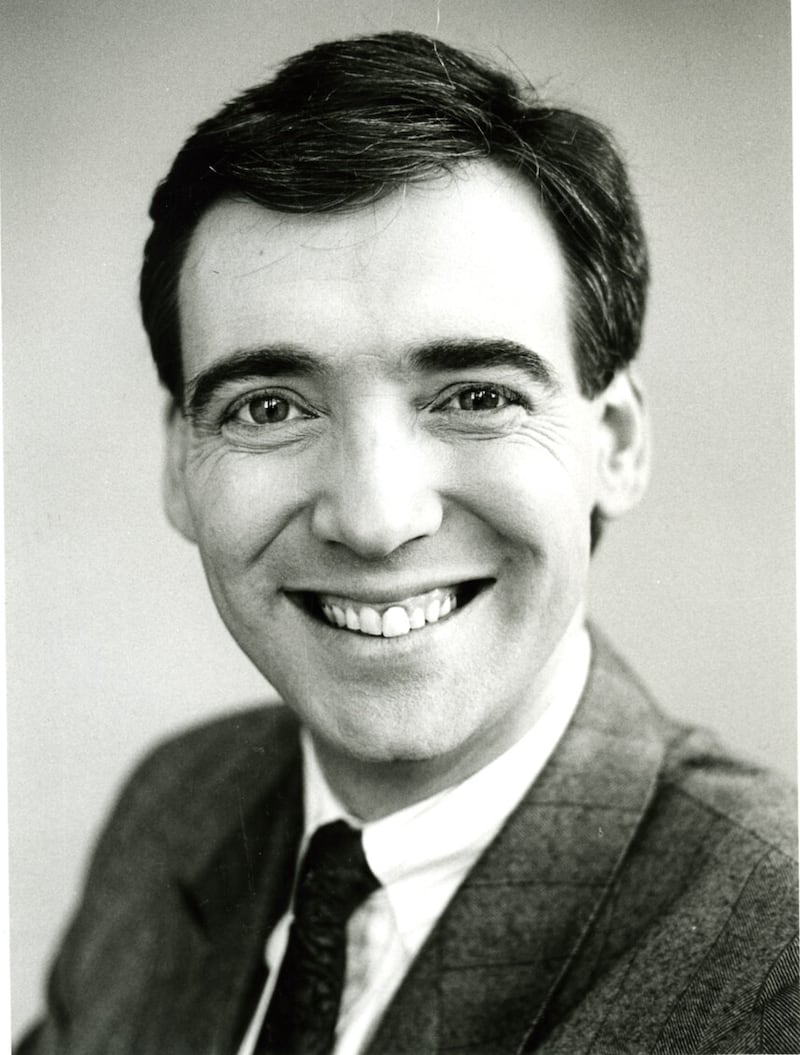
“I was there at the time when Charles Haughey and Garrett FitzGerald were trying to form governments but couldn’t because the hunger strikers were getting elected.
“I was always politically aware and never detached from the reality of life and death,” says Clark, whose other poignant memory from that era is broadcasting the morning after the Stardust ballroom fire of 1981, which killed 48 people.
Clark returned to BBC Radio Ulster in 1983 with an afternoon programme, Paul Clark 3-5, which combined music with magazine interviews.
He spent a short period in the mid ‘80s working on BBC Radio Four’s You and Yours in London, before returning to Belfast to work on breakfast television, which was still in its infancy.
“This led on to then doing occasional presenting of the teatime news programme, alongside Sean Rafferty, and a lady called Rose Neill,” smiles Clark who still presents alongside his fellow household name on UTV Live.
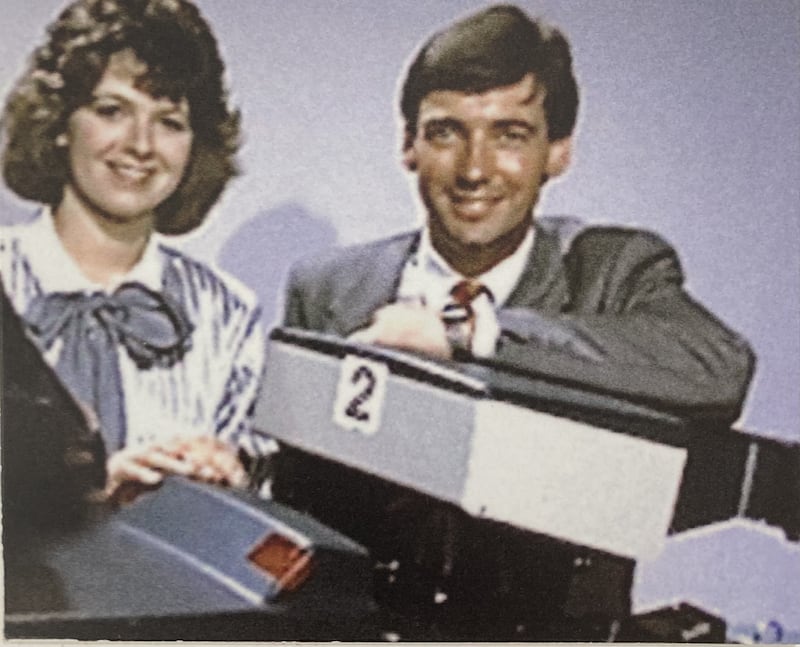
Eager to do more television, he describes the opportunity to move to anchor the teatime news slot on UTV in 1989 as “a no-brainer”.
Without hesitation, Clark names the late Rev Ian Paisley as the most difficult person he has interviewed.
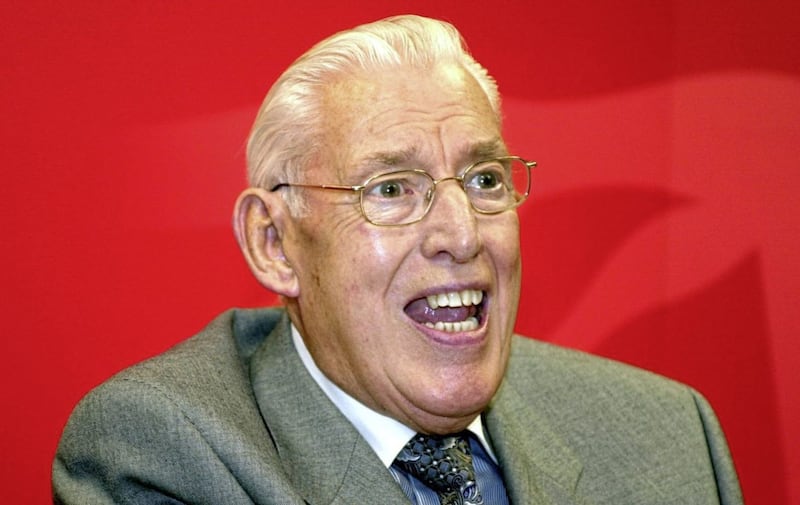
“I remember on one occasion, challenging him off-air after an interview as to why he wouldn’t look at me when he was talking, nor answer the question asked. His answer: 'Because I am addressing myself to the Ulster public,'" recalls Clark in his best Paisley impersonation.
Former SDLP leader John Hume was another difficult interviewee. “It was very difficult to interrupt John because he deliberately paused for breath in the middle of a sentence, rather than at the end.”
Although he now currently spends most of his time in the UTV studio, Clark doesn’t see himself as a presenter, but as a journalist.
“I realised journalism was indeed my first love. It’s a vocation, a passion and a calling and never something you can switch off from.”
With his role comes a burden of responsibility that he takes very seriously.
“I never take what I do for granted. Words are not cheap. Words have cost lives in our society and we've always got to be very, very careful about how we use them.
“We who are journalists are servants of the people, because in a democracy, people have the right to know.”
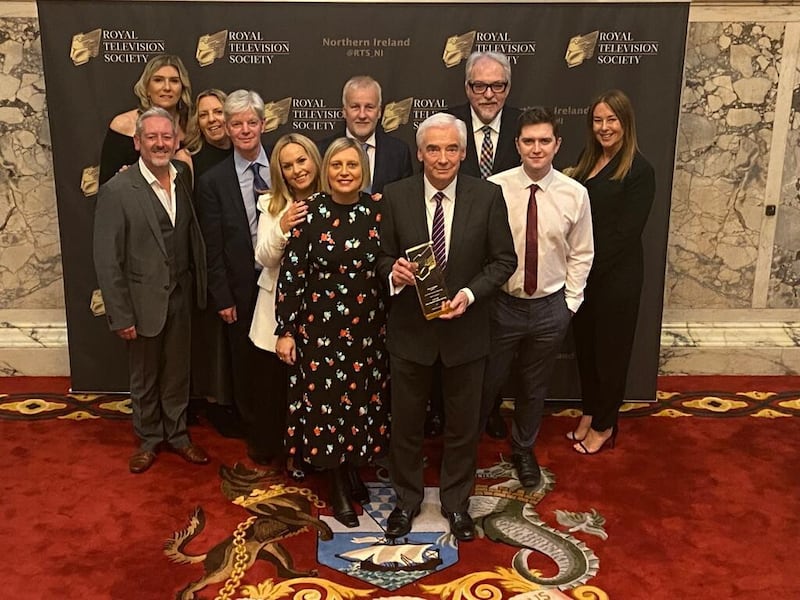
He believes in the midst of a culture of fake news and social media, this is more important than ever.
“There's an awful lot of misinformation out there. It means that we've got to work harder and work smarter, but the bottom line is still the same - the facts are sacred and you’ve got to be sure that you get it right.
“Six o'clock is still an appointment for a lot of people because they have it analysed for them. It gives them the digest and the details that they need to make their informed decision."
Paul says that he still loves the job which has seen him become a trusted presence in a generation's nightly viewing and that retirement isn’t something that is on his radar – just yet.
“My mum always says ‘your health is your wealth’, and I'm blessed in that regard. In truth, I am probably more wedded to my job today than I was when I started in The Irish News 50 years ago.
“Cahal Daly famously said the two last things that he wanted to lose in this life were his books and his curiosity. I would subscribe to that.
“I’m still very much curious and enjoying my job and I would hope that if I ever stopped enjoying what I do, that I would have the honesty to admit it and to say it's time to stop.”
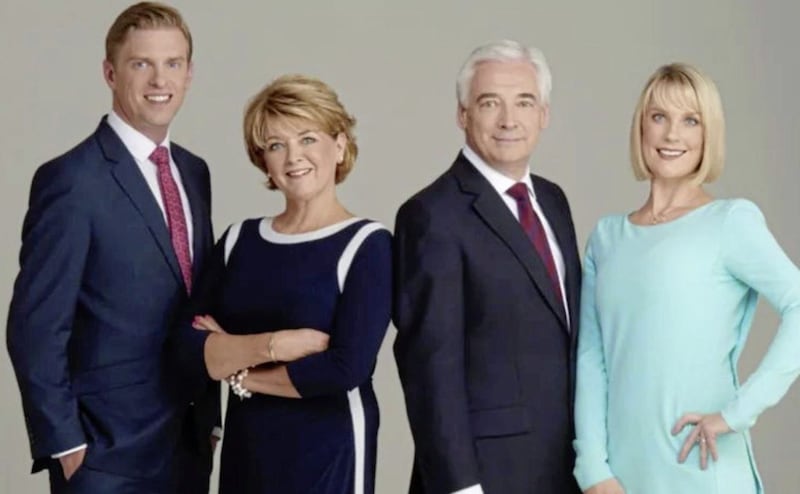
Clark also fronts the late night weekly politics show, The View From Stormont. I end by asking him if there’s any chance of following his former UTV colleagues Mike Nesbitt and Fearghal McKinney into politics.
"I know my limitations. I'd rather be asking the questions than answering them. Besides, my wife wouldn't allow me,” he laughs.
UTV has made a special digital production, where Paul sits down with UTV’s Tori Watson for an in depth discussion about his career. He'll also talk about his life outside of news, his family and passions. Available on www.itv.com/utv.
